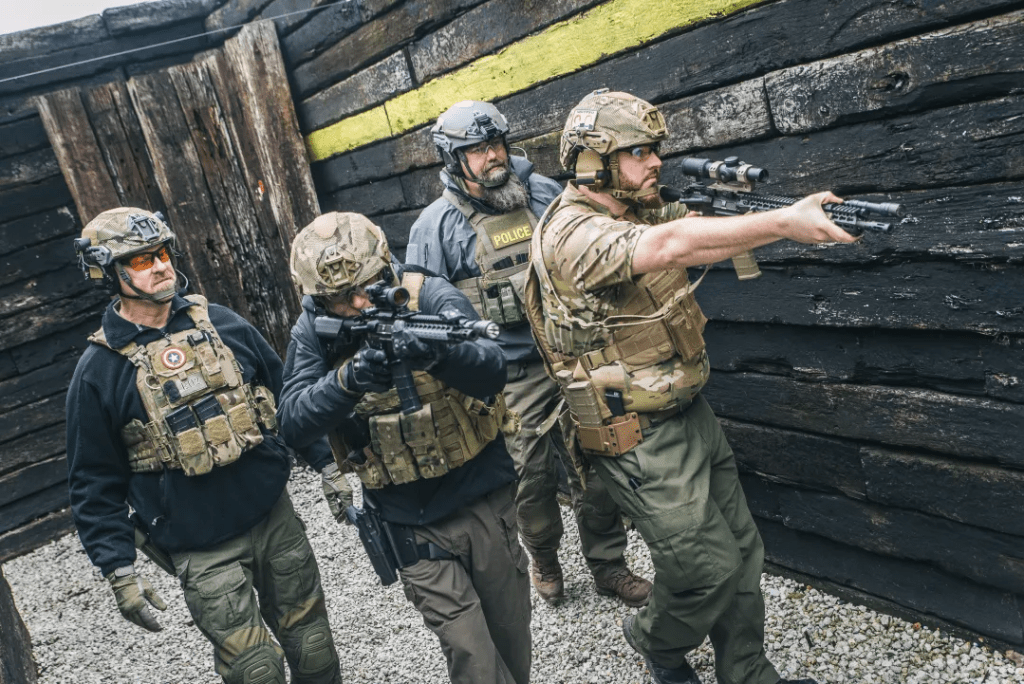On School Resource Officers
As I circulate through our profession, I have developed a general impression of the School Resource Officer (SRO) programs we as a community have developed and allowed to exist since 1999.
First, some context. I am not an SRO expert. My specialization is not School policing; I am a tactical patrol officer, leadership and SWAT guy. I have never been an SRO. I have not specifically studied the concept in any serious level of detail. All of my opinions are based on my observations having supported SRO programs from both a patrol and SWAT position, traveling around the country teaching patrol and SWAT cops (and a depressingly small number of SROs) for a couple of decades, and studying many school shootings to a pretty granular level of detail. I do not purport to have a systematized solution or POI. What I do have some level of expertise in is the application of tactics and violence in response to criminal actions at the individual, team, and organization levels. I also understand that every department, school district, local governing body, and parent demographic creates its own unique raw material from which the culture, training standards, SOPs, and deployment methodologies “sausage is made”.
The recent incidents in New York and Texas have served as a focusing event for me, and I think should for you as well.
Having said all that, I see some issues we as law enforcement professionals and leaders can and should look at with a sharp eye and address as needed.
Issue 1: SRO Mission
In my travels, and in some cases my involvement at a leadership level in the assignment of SROs, I have more than once seen the purpose of having a cop in a school become completely deluded and lost in the chaff by all parties involved. While school administrators want to protect the children in their charge, they lack the life and professional experience to understand the realities of a low probability/ high consequence event like a school shooting. The sudden, hype-violent, and chaotic nature of these attacks is wholly outside the understanding of people who have spent their lives educating children. And that’s probably a good thing.
The problem arises when these people are asked to approve a specific officer’s assignment to an SRO program. While your jurisdiction may not have an express policy of school administrators having at least a veto, if not the outright selection decision, over these assignments, I guarantee you they do. What law enforcement executive wants to fight over a personnel assignment of the kiddy-cop? None, that’s who.
Worse, some agencies use the SRO program as a place to put those too meek or otherwise unsuited for patrol duty, as a retirement home for cops they don’t have the heart to tell they can no longer perform to standard and should take their pension and go away, or police executives use the positions as a cush, Monday through Friday with summers off, job for their buddies who can’t cut it in patrol or detectives.
These two colliding tendencies on both sides of the decision combine with the third ingredient in this stew to create a truly nasty knot: the cop you want to protect YOUR children does not want to be an SRO. In fact, the barrel-chested gunfighter cop would rather drag their balls (or vaginitis) over glass covered in month old cat shit than go to work every day and scold children, white them lame simple possession tickets that the juvenile judge is going to dismiss and teach Nancy Reagan’s busted ass curriculum to smart ass kids. The precise people we want for the truly important part of their job will kick, scream, change agencies, blackmail, and generally raise hell if you even mention them becoming an SRO.
Some of this stew is the natural result of the government way of business and the fallibility of human decisions in groups. But it all a symptom of the real issue: in situations like these, none of the parties are focusing on the actual mission.
SROs primary mission is not to mentor kids, teach DARE classes, search lockers for dine bags of weed, or prevent teen pregnancies at basketball games. While these are all tasks an SRO must do, and be good at, it is not the PRIMARY purpose of their existence.
The mission, the Prime Directive, the First Commandment, of an SRO is the stop a lethal attack on a school before any children are harmed. Period.
The fundamental purpose of an SRO is to find, fix and burn down anyone within their area of responsibility who is there to harm the students. Everything else is a “nice to have”.
The last line of defense for ensuring the person assigned as an SRO is suited to carry out that mission is the law enforcement executive. If it were my job involved assigning those officers, I’d write that shit on my hand so I didn’t forget.
Issue 2: SRO Leadership
Here’s an experiment: the next time you find yourself talking to an SRO, ask them who their boss is, and when was the last time their boss stopped by and checked on how they are doing, what they need, or checked their performance. I’ve done this a few times at various agencies and have gotten some interesting answers.
I’ve heard the gambit of answers… everything from “My boss is here every few days. They do walkthroughs with me, and we do a little war-gaming. They have high standards and obviously give a crap”, to “My boss is the school Principal. I teach a class every day, and the kids all love me, and I got a DARE award last year”.
SROs are cops. Not teachers. Cops must be led; personally. Leadership upholds the standard, mentors and teaches, and support. Leadership is not signing timecards, scheduling, and tracking mandatory training; that’s management.
Without competent, personal leadership, the best SRO will lose sight of their primary mission. Without good leadership, an SRO naturally fully integrates into to teaching staff, rather than focusing on their main purpose and fitting in the ancillary tasks around it.
Issue 3: Training and equipment
Do the SROs in your area wear a full-size pistol and a few spare mags? Do they wear a ballistic vest? Do they have ready access to a rifle? When was the last time they trained on tactics, or firearms, or CIT, or DT?
My police leader brain understands some agencies using a softer, class B uniform for SROs. I get it. The kids DO need to feel like they can approach the SRO. They need to be comforted with them, and it helps the SRO accomplish their primary mission because the personal interaction allows the SRO to gather intel.
Having said that, keeping the primary mission in mind, is it really wise for an SRO to not wear a ballistic vest? In their role, the vest exists to keep them alive long enough to elements a shooter; any personal benefit of the ballistic protection is secondary.
Is it wise for an SRO to carry a sub-compact pistol and no spare mags? While this may look less threatening to the kids, that 8 rounds of blistering 9mm in that Glock 43 may not be the best choice for the 38-yard shot at the domestic terrorist breaching a classroom at the other end of the hallway.
Is it wise for an SRO to maintain their physical fitness, train hard and often on the skills and techniques of singleton CQB, and prepare themselves mentally for the potential battle?
The tactical objective of an SRO in the primary mission is to fix and hold the suspect until either they are eliminated as a threat, or the Calvary arrives and can maneuver on and eliminate it.
Does your training and equipment enable accomplishment of the primary mission, or not?
Conclusion
Many agencies do this mission right. Some do not. Some are somewhere in the middle. The challenge for us as a community is the same as always: all police is, and should be, local; and the percentage of true gunfighters among our ranks is very small.
These challenges are not, however, an excuse for us to ignore the problem. If you are responsible for an SRO program, or are an SRO, take a moment to turn off your ego and honestly evaluate your program. Do you have weaknesses that are within your power to fix? If something is wrong or half ass, but outside your power to control, what can you do to effectively influence needed change?
The societal contagion of school terrorist attacks is not going away. Given the politization of it we are seeing, it may accelerate. Let’s get ready to crush it early when it happens.
I’m sure I missed some critical issues, so discuss.
John “Chappy” Chapman












[…] To fully understand the incident, you also need to understand the realities of school couture officers. […]